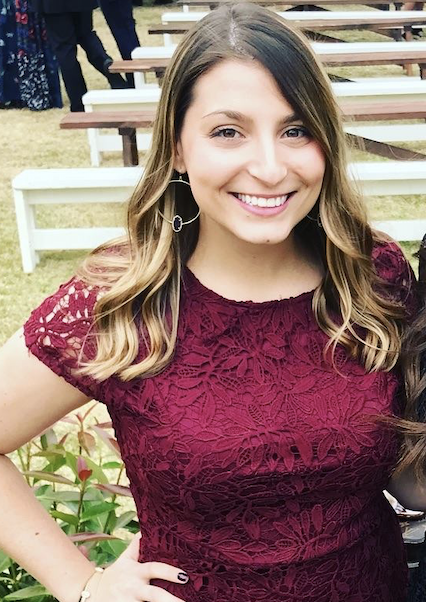Health Teacher Makes Her Mark on Virtual Learning

by Jenna Bloom ‘21
Finding a way to make online school engaging while staying mindful of students’ mental health is no easy task. However, Health teacher Heather Giovenco seems to have it figured out. Using countless tools and strategies to accommodate her students, Giovenco has already won “teacher of the week” in her first year at Sherwood.
Her passion for teaching started young. “I used to come home and teach my little sister the lessons I learned that day in school,” Giovenco said. In high school, her own health teacher became her mentor and helped her through some difficult times, leading her to realize she wanted to do the same for students. Giovenco went on to earn her Bachelor’s degrees in health education and physical education at Salisbury University. After college, she taught at Lee Middle School for four years before starting at Sherwood.
While it has been a bummer adjusting to a new school fully online, “everyone has been so welcoming and the teachers in the PE department have helped me to feel at home here,” Giovenco said. She also sponsors a new club called Warriors for Change, and “the students in it have helped explain to me what it means to be a Warrior.”
In order to increase engagement, Giovenco’s goal for health education is to teach her students something that is relevant to their lives every day 一 and if they feel this was not accomplished, then they should tell her so she will change it for the future.
Giovenco has used many different platforms to complete assignments, including Flipgrid, trivia games, TikToks, Zoom polls, word splashes, and even physical challenges. On top of that, Giovenco always plays music during check-in, allows students to be in breakout rooms with at least one friend, and brings in as much mainstream content into their lessons as she can.
Feedback is a vital part to improvement, which is why Giovenco always asks her students for it. Students receive a survey both marking periods to share what they are enjoying and what they need to be more successful. “Student voice is so important to making Health class a better experience,” she said.
With Zoom fatigue being extremely prevalent, she always tries to remind her students that feeling stressed or drained is totally normal and valid. Every two weeks, her students complete a “stress journal” assignment where they have ten minutes to just “brain dump,” with no constraints on what to write or how long they have to write for. “This allows students to practice a stress management technique to help decompress the tough stuff that they are dealing with,” Giovenco added. “I also think it’s important to listen to your students! If a majority of my students are talking about how much work or assessments other classes are putting on them I try to balance my assignments for that week to not add more to their plate.”
Every day is different in Health class, but usually they start with music and a check-in question. After that they frame the day with their goals, updates, and a “this week in health” news update. Then, there is some content learning that is either student, group, or teacher led. From there Giovenco will introduce the assignment of the day and students will get into assigned or student-choice break out rooms to work. She’ll check in and chat with students during the class and then they always try to come back together to close out class, explain the purpose of the lesson, and answer questions.
Giovenco advises other teachers and students to “just keep pushing and never forget how important self-care is during this time. It’s okay to feel unmotivated or overwhelmed right now and to realize you are not alone. However, it is so important to reach out to your trusted adults or friends if you are struggling. Even just talking to someone can make a huge difference in the way that you feel. There is no shame in needing a little help; this virtual school stuff is hard!”